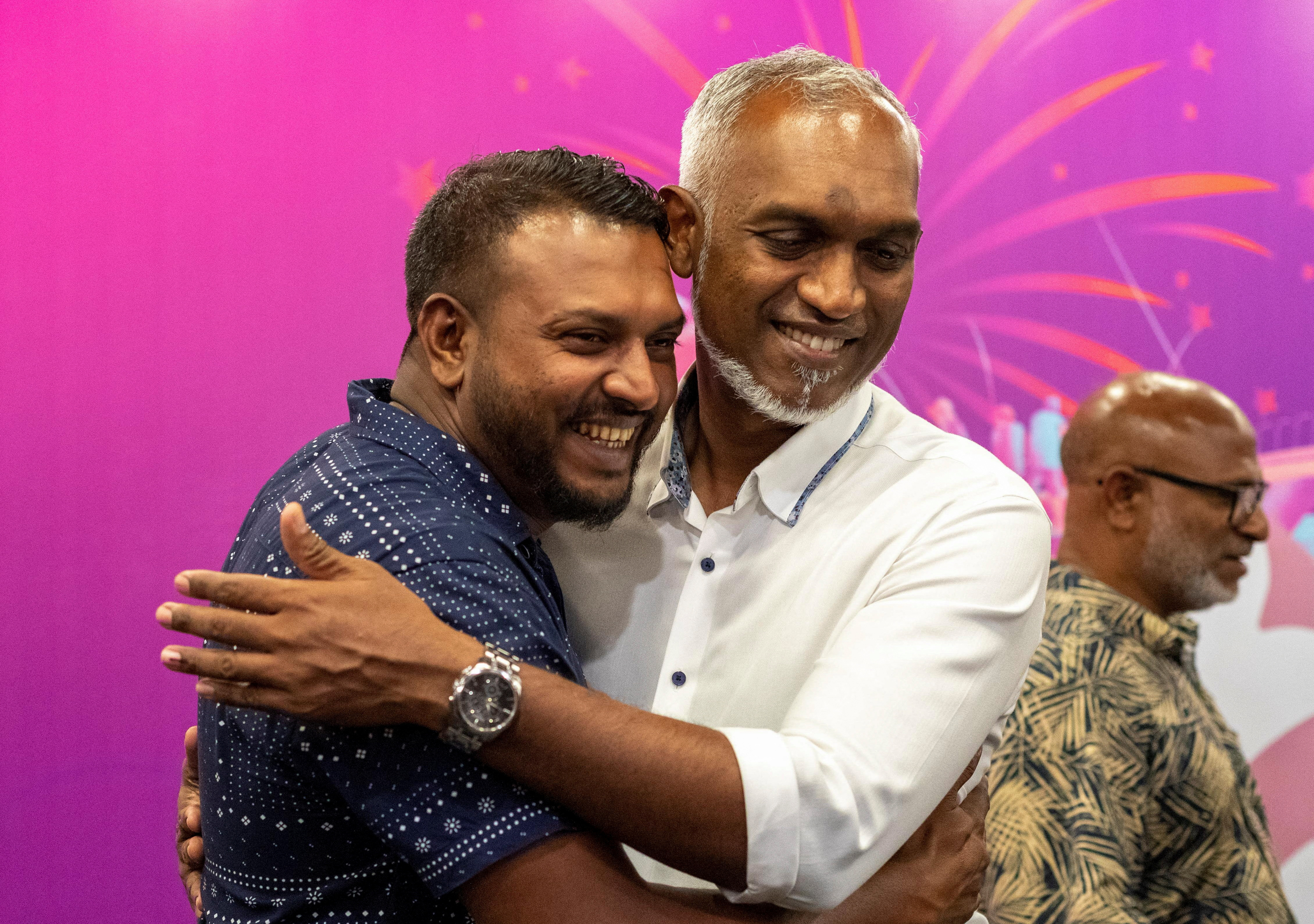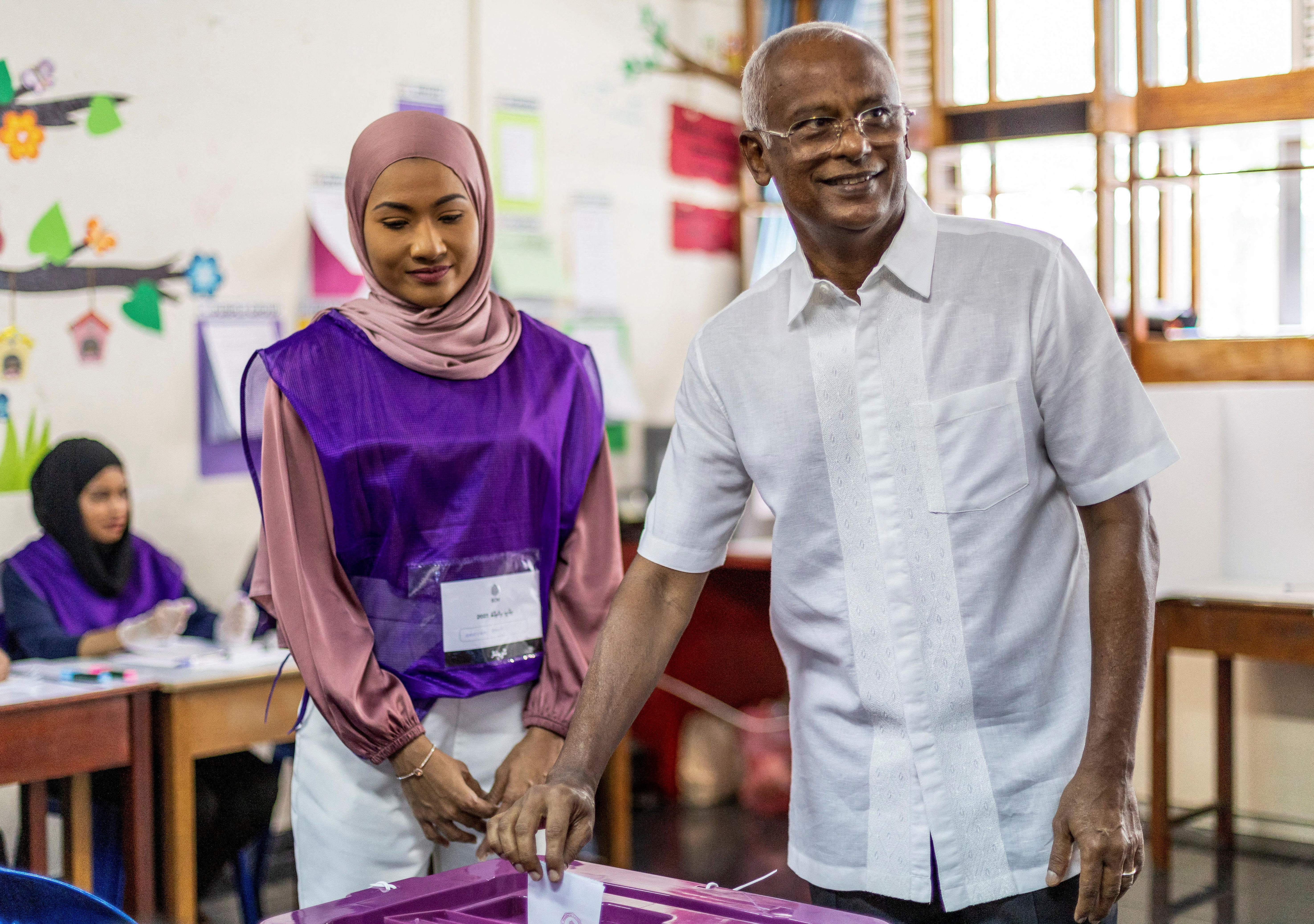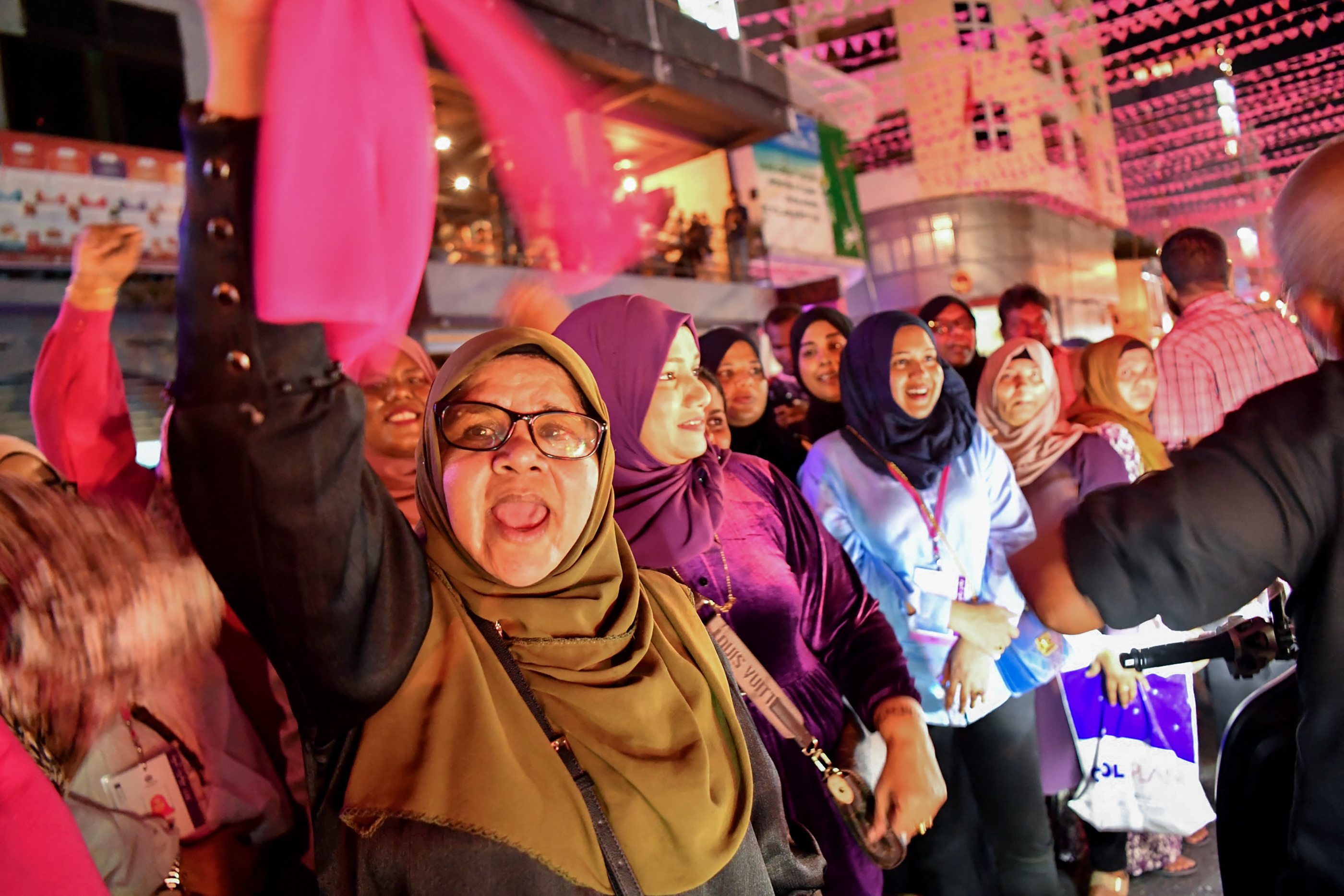
Mohamed Muizzu has won the presidential election in the Maldives after a second-round run-off against incumbent Ibrahim Mohamed Solih, which was seen as a test of the Indian Ocean archipelago’s nascent democracy as well as its ties with China and traditional benefactor India.
Muizzu, 45, leads a party that welcomed an influx of Chinese loans and oversaw a wide-ranging crackdown on dissent when it was last in power.
Incumbent Ibrahim Mohamed Solih conceded defeat shortly before midnight after the Elections Commission of the Maldives said Muizzu had won 54.06 percent of the vote in the run-off contest.
“Congratulations to president-elect Muizzu,” Solih wrote on X, formerly known as Twitter.
“Thank you for the beautiful democratic example shown by the people in the elections,” he added.
Solih, 61, will remain as caretaker president until his successor’s inauguration on November 17.
Muizzu, 45, emerged as the surprise frontrunner during the first round of voting on September 8, taking some 46 percent of the ballots cast. Solih – hurt by a low voter turnout and a split within his Maldivian Democratic Party (MDP) – won 39 percent.
The run-off was seen as having significant implications for the Maldives’s foreign policy, especially in deciding China and India’s battle for influence in the strategically-located country.

“Today’s result is a reflection of the patriotism of our people. A call on all our neighbours and bilateral partners to fully respect our independence and sovereignty,” Mohamed Shareef, a top official from Muizzu’s Progressive Party of Maldives, was quoted as saying by the Associated Press news agency.
Muizzu, who is currently the mayor of the capital Male, made a brief appearance outside his party’s campaign headquarters to urge supporters not to celebrate until Sunday morning, when campaign restrictions officially come to an end.
Muizzu, a one-time housing minister, played a pivotal role in an earlier government’s development programme, bankrolled in part by financial largesse from China’s Belt and Road infrastructure initiative.
He told a meeting with Chinese Communist Party officials last year that his party’s return to office would “script a further chapter of strong ties between our two countries”.
The party’s return to power might also mean freedom for former President Abdulla Yameen, Muizzu’s mentor.
Yameen, who lost power in 2018 as he moved the country closer to China and became increasingly autocratic, is serving an 11-year prison term for corruption and money laundering. His supporters say the charges against him are politically motivated.
Watchdog group Transparency Maldives said there had been some incidents of “electoral violence,” without specifying further details.
There were more than 282,000 eligible voters and turnout was 85 percent, slightly higher than the first-round vote.
India, China angle
Solih, who was first elected president in 2018, was battling allegations by Muizzu that he had allowed India an unchecked presence in the country.
Solih has insisted that the Indian military’s presence in the Maldives was only to build a dockyard under an agreement between the two governments and that his country’s sovereignty will not be violated.
Muizzu promised that if he won the presidency, he would remove Indian troops from the Maldives and balance the country’s trade relations, which he claimed were heavily in India’s favour.

Ahmed Shaheed, a former foreign minister of the Maldives, described the outcome as a verdict on the government’s failure to meet economic and governance expectations rather than concerns over Indian influence.
“I don’t think India was at all in the people’s minds,” Saheed said.
Solih suffered a setback closer to the election when Mohamed Nasheed, a charismatic former president, broke away from his Maldivian Democratic Party (MDP) and fielded his own candidate in the first round. He decided to remain neutral in the second round.
“Nasheed’s departure took the motherboard away from the MDP,” Shaheed said.
Yameen, leader of the Progressive Party of the Maldives, made the Maldives a part of China’s Belt and Road Initiative during his presidency from 2013 to 2018. The initiative is meant to build railroads, ports and highways to expand trade – and China’s influence – across Asia, Africa and Europe.
Nevertheless, Muizzu is unlikely to change the foreign policy of affording an important place to India. Rather, opposition to Chinese projects is likely to lessen, evening power balances out, Shaheed said.







